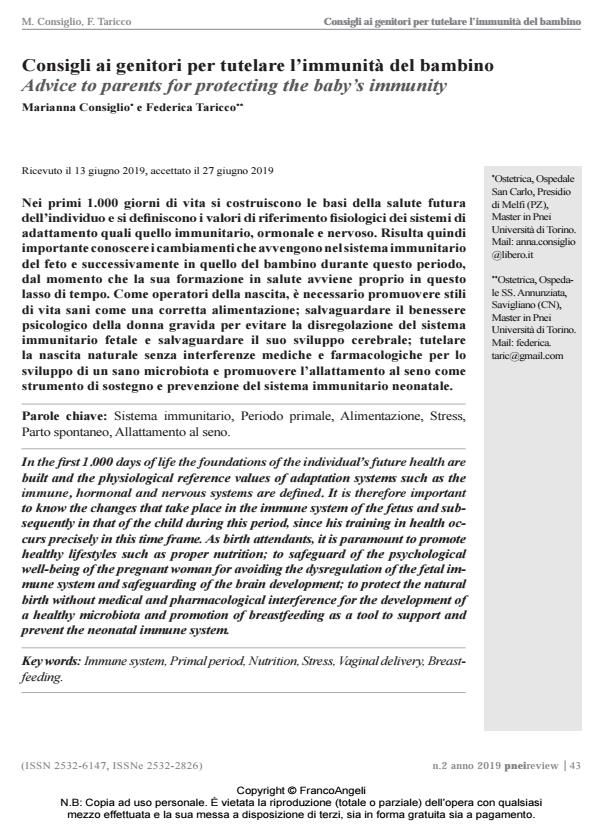Advice to parents for protecting the baby’s immunity
Journal title PNEI REVIEW
Author/s Marianna Consiglio, Federica Taricco
Publishing Year 2019 Issue 2019/2
Language Italian Pages 13 P. 43-55 File size 138 KB
DOI 10.3280/PNEI2019-002005
DOI is like a bar code for intellectual property: to have more infomation
click here
Below, you can see the article first page
If you want to buy this article in PDF format, you can do it, following the instructions to buy download credits

FrancoAngeli is member of Publishers International Linking Association, Inc (PILA), a not-for-profit association which run the CrossRef service enabling links to and from online scholarly content.
In the first 1.000 days of life the foundations of the individual’s future health are built and the physiological reference values of adaptation systems such as the immune, hormonal and nervous systems are defined. It is therefore important to know the changes that take place in the immune system of the fetus and subsequently in that of the child during this period, since his training in health occurs precisely in this time frame. As birth attendants, it is paramount to promote healthy lifestyles such as proper nutrition; to safeguard of the psychological well-being of the pregnant woman for avoiding the dysregulation of the fetal immune system and safeguarding of the brain development; to protect the natural birth without medical and pharmacological interference for the development of a healthy microbiota and promotion of breastfeeding as a tool to support and prevent the neonatal immune system.
Keywords: Immune system, Primal period, Nutrition, Stress, Vaginal delivery, Breastfeeding.
Marianna Consiglio, Federica Taricco, Consigli ai genitori per tutelare l’immunità del bambino in "PNEI REVIEW" 2/2019, pp 43-55, DOI: 10.3280/PNEI2019-002005